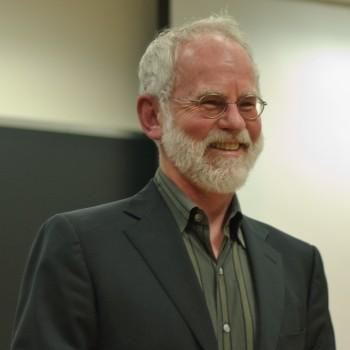Biography
Roy Pea is David Jacks Professor of Education & Learning Sciences at Stanford University, School of Education, and Computer Science (Courtesy), and has been Director of the H-STAR Institute, Wallenberg Hall, 450 Serra Mall, Bldg. 160, Stanford, CA 94305; roypea@stanford.edu. His studies and publications in the learning sciences focus on advancing theories, research, tools and social practices of technology-enhanced learning of complex domains, including his role as Co-Director and Co-PI of the NSF-funded LIFE Center (2004-2014), which sought to develop and test principles about the social foundations of human learning in informal and formal environments with the goal of enhancing human learning from infancy to adulthood. He is also founder and Director of Stanford’s PhD program in Learning Sciences and Technology Design. He is co-author of the 2010 National Education Technology Plan for the US Department of Education, co-editor of Mirrors of Minds: Patterns of Experience in Educational Computing (1987), Video Research in the Learning Sciences (2007), Learning Analytics in Education (2018), The Routledge Handbook of the Cultural Foundations of Learning (2020), AI in Education (2022), and co-author of the National Academy of Sciences books: How People Learn (2000), and Planning for Two Transformations in Education and Learning Technology (2003). He is a Fellow of the American Academy of Arts and Sciences, National Academy of Education, Association for Psychological Science, the American Educational Research Association, the Center for Advanced Study in the Behavioral Sciences, and Inaugural Fellow of the International Society of the Learning Sciences. In 2004-2005, Roy was President of the International Society for the Learning Sciences. Roy served from 1999-2009 as a Director for Teachscape, a video-based teacher professional development services company he co-founded with CEO Mark Atkinson.
Other titles
Program affiliations
DAPS
Learning Sciences and Technology Design (LSTD)
Race, Inequality, and Language in Education (RILE)
SHIPS (PhD): Educational Data Science
(MS) LDT
(MS) EDS
Stanford Accelerator for Learning
Research interests
Brain and Learning Sciences | Child Development | Collaborative Learning | Curriculum and Instruction | Data Sciences | Diversity and Identity | Environmental Education | Equity in Education | Race and Ethnicity | Science Education | Teachers and Teaching | Technology and Education
Recent publications
Maples, B., Cerit, M., Vishwanath, A., & Pea, R. (2025). How AI Companions shape learner's socio-emotional learning and metacognitive development. AI & SOCIETY.
Reynante, B., Ardoin, N. M., & Pea, R. (2025). Envisioning sustainable climate imaginaries through an "engineering fiction" learning experience: A content analysis of youth stories. FUTURES, 172.
Konstantinides, N., Baugh, C. M., Bugwadia, A., Kroshus, E., Schowalter, S., Hainline, B., … Daneshvar, D. H. (2025). Association between concussion-reporting intention and reporting behavior in a simulated game setting. PM & R : the Journal of Injury, Function, and Rehabilitation.

